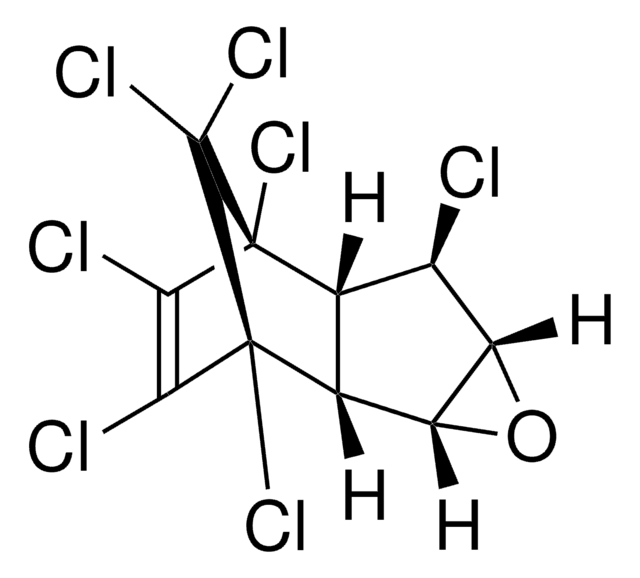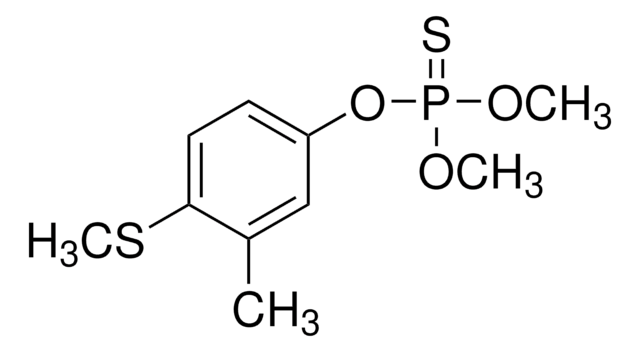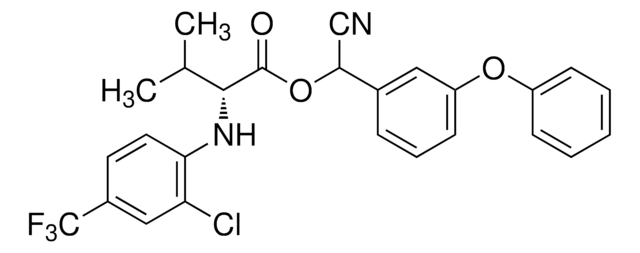31519
Ethoxyquin
PESTANAL®, analytical standard
Synonym(s):
1,2-Dihydro-6-ethoxy-2,2,4-trimethylquinoline, 6-Ethoxy-1,2-dihydro-2,2,4-trimethylquinoline
About This Item
Recommended Products
grade
analytical standard
Quality Level
product line
PESTANAL®
shelf life
limited shelf life, expiry date on the label
technique(s)
HPLC: suitable
gas chromatography (GC): suitable
density
1.03 g/mL at 20 °C (lit.)
application(s)
cleaning products
cosmetics
food and beverages
personal care
format
neat
shipped in
wet ice
storage temp.
2-8°C
SMILES string
CCOc1ccc2NC(C)(C)C=C(C)c2c1
InChI
1S/C14H19NO/c1-5-16-11-6-7-13-12(8-11)10(2)9-14(3,4)15-13/h6-9,15H,5H2,1-4H3
InChI key
DECIPOUIJURFOJ-UHFFFAOYSA-N
Looking for similar products? Visit Product Comparison Guide
Related Categories
General description
Application
Caution
Air sensitive: Handle under argon
Legal Information
Signal Word
Warning
Hazard Statements
Precautionary Statements
Hazard Classifications
Acute Tox. 4 Oral
Storage Class Code
10 - Combustible liquids
WGK
WGK 2
Flash Point(F)
Not applicable
Flash Point(C)
Not applicable
Personal Protective Equipment
Choose from one of the most recent versions:
Already Own This Product?
Find documentation for the products that you have recently purchased in the Document Library.
Customers Also Viewed
Our team of scientists has experience in all areas of research including Life Science, Material Science, Chemical Synthesis, Chromatography, Analytical and many others.
Contact Technical Service













